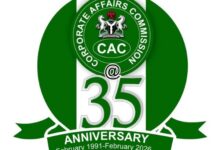CAN describes social media, hate speech bills as ploys to gag Nigerians
 The Christian Association of Nigeria has called on the National Assembly to drop the proposed social media and hate speech bills saying that they are ploys to gag Nigerians. In a statement by the National Director, Legal and Public Affairs, CAN, Evang. Samuel Kwamkur in Abuja on Thursday, the CAN President, Dr Samson Ayokunle further urge the National Assembly to focus on legislation that could address insecurity, deplorable infrastructural amenities and the general welfare of the people.
The Christian Association of Nigeria has called on the National Assembly to drop the proposed social media and hate speech bills saying that they are ploys to gag Nigerians. In a statement by the National Director, Legal and Public Affairs, CAN, Evang. Samuel Kwamkur in Abuja on Thursday, the CAN President, Dr Samson Ayokunle further urge the National Assembly to focus on legislation that could address insecurity, deplorable infrastructural amenities and the general welfare of the people.
It said, “These two bills have generated misgivings and criticisms that they have led to uncommon tension and fears among citizens. Having looked at all sides to the debate, CAN is calling on the National Assembly, particularly the President of the Senate and all distinguished Senators to discountenance the two bills and put off completely any contemplation to pass them into Acts of the National Assembly as sincere lovers of the nation.”
READ ALSO: Proposed social media bill poses serious threat to freedom expression-Shehu Sani
While acknowledging that individuals and organizations had taken advantage of social media to cause tremendous damage to individuals and institutions, the Christian body described this as “unfortunate developments in the use of technology.” The association argued that there were adequate laws to check the excesses of individuals and organizations that were misusing the social media and propagating hate speeches.
“The Penal Code, Criminal Code, Cyber Crime Act and other legal provisions on crimes that deal with hate speeches, defamation, libel and similar offences are clear and strong enough,” it noted.
CAN said it was concerned that Nigerians were distracted from discussing topical issues that had a direct bearing on their survival and wellbeing such as poverty, corruption, and the provision of good health facilities. Ayokunle stated, “In this wise, we desire that governments at all levels and indeed members of the National Assembly pay greater attention to the issues of insecurity, economic hardship, poverty, bad roads, poor education and the dearth of infrastructure.”
Juliet Ekwebelam










